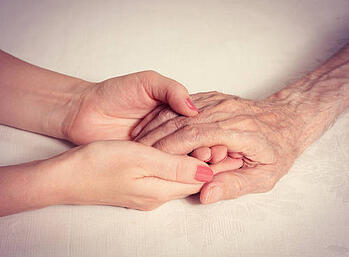 By Jim Stinson, Director of Spiritual Life for United Methodist Homes
By Jim Stinson, Director of Spiritual Life for United Methodist Homes
I was thinking of a hundred and one things I had to do that day. I was told he would be there between 7:00 and 9:00 AM. It was already 7:30 and I was already chomping at the bit. “When will he get here?” “I bet it will be closer to 9:00 AM.” “It seems like I am always last on the list.” And on it went!
At one point in my fussing and fuming I remembered something I’ve heard many times over the years from older people, including my mother and mother-in-law. As one of them waited for me to drive her to a doctor’s appointment, she said, “It seems as if all I do is wait. I know I depend on others to help me get places and should not complain, but I just don’t like waiting.” (BTW – no one likes to wait.)
While not sure of my verbal response, I am sure of what I was thinking when she said that! “You’re darn right. You should not complain. Be glad there’s someone who cares enough to get you places.” But hopefully the response was more gracious and restrained.
“It seems like all I do is wait!”
One of the issues of aging is often a growing sense of dependence on others to do for us what “we always did for ourselves.” Understandably others cannot always be at our beck and call. But the seeming impatience of older people is understandable. There is truth to the complaint. What to do about it is another issue.
A challenge for caregivers (family members and others) is to understand the situation while holding the older adult to accountability. He or she is not the only one who has to give. Those we care for need to be accountable for their own attitude. How could the waiting time be used in a better way? Reading, crossword puzzles, enjoying old pictures, and jotting notes to old friends might be some of the ways waiting time can be given meaning.
Those who care for or about older adults are doing them a real favor by reminding them that time waiting does not have to be wasted time or useless time. It may be even be a welcome gift to them to provide a “goody bag” of things to do while waiting.
So, when it comes to “the waiting game,” empathize with your loved one, but don’t feed the feeling by acquiescing or feeling guilty. Witness to the value of waiting time.


